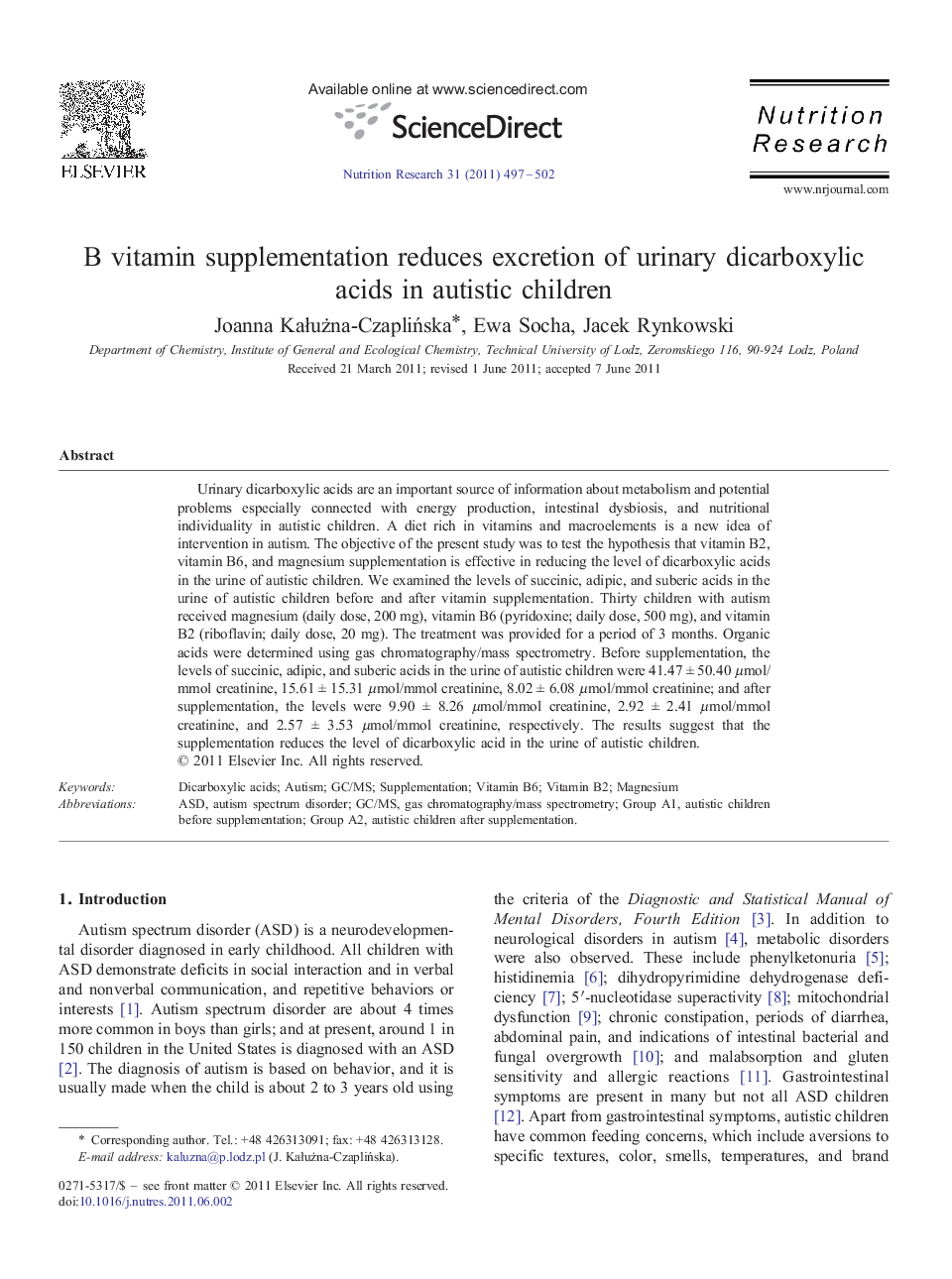| کد مقاله | کد نشریه | سال انتشار | مقاله انگلیسی | نسخه تمام متن |
|---|---|---|---|---|
| 2809584 | 1158061 | 2011 | 6 صفحه PDF | دانلود رایگان |

Urinary dicarboxylic acids are an important source of information about metabolism and potential problems especially connected with energy production, intestinal dysbiosis, and nutritional individuality in autistic children. A diet rich in vitamins and macroelements is a new idea of intervention in autism. The objective of the present study was to test the hypothesis that vitamin B2, vitamin B6, and magnesium supplementation is effective in reducing the level of dicarboxylic acids in the urine of autistic children. We examined the levels of succinic, adipic, and suberic acids in the urine of autistic children before and after vitamin supplementation. Thirty children with autism received magnesium (daily dose, 200 mg), vitamin B6 (pyridoxine; daily dose, 500 mg), and vitamin B2 (riboflavin; daily dose, 20 mg). The treatment was provided for a period of 3 months. Organic acids were determined using gas chromatography/mass spectrometry. Before supplementation, the levels of succinic, adipic, and suberic acids in the urine of autistic children were 41.47 ± 50.40 μmol/mmol creatinine, 15.61 ± 15.31 μmol/mmol creatinine, 8.02 ± 6.08 μmol/mmol creatinine; and after supplementation, the levels were 9.90 ± 8.26 μmol/mmol creatinine, 2.92 ± 2.41 μmol/mmol creatinine, and 2.57 ± 3.53 μmol/mmol creatinine, respectively. The results suggest that the supplementation reduces the level of dicarboxylic acid in the urine of autistic children.
Journal: Nutrition Research - Volume 31, Issue 7, July 2011, Pages 497–502